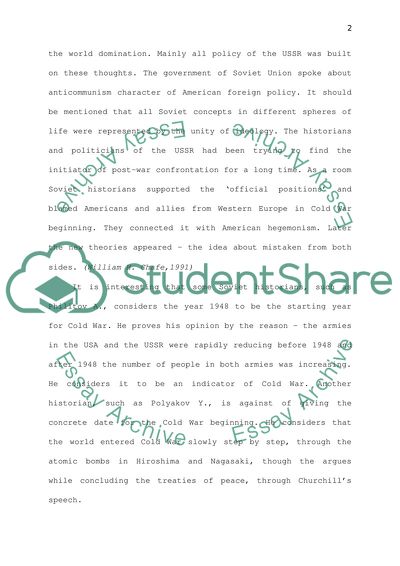Cite this document
(Cold War: Account for the Rise and Fall of Detente Term Paper, n.d.)
Cold War: Account for the Rise and Fall of Detente Term Paper. https://studentshare.org/history/1706561-cold-war-essay-account-for-the-rise-and-fall-of-detente
Cold War: Account for the Rise and Fall of Detente Term Paper. https://studentshare.org/history/1706561-cold-war-essay-account-for-the-rise-and-fall-of-detente
(Cold War: Account for the Rise and Fall of Detente Term Paper)
Cold War: Account for the Rise and Fall of Detente Term Paper. https://studentshare.org/history/1706561-cold-war-essay-account-for-the-rise-and-fall-of-detente.
Cold War: Account for the Rise and Fall of Detente Term Paper. https://studentshare.org/history/1706561-cold-war-essay-account-for-the-rise-and-fall-of-detente.
“Cold War: Account for the Rise and Fall of Detente Term Paper”. https://studentshare.org/history/1706561-cold-war-essay-account-for-the-rise-and-fall-of-detente.


